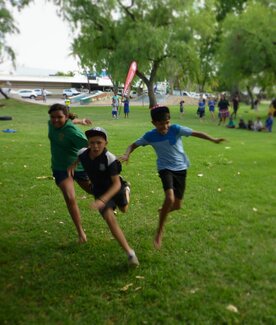

Displaying 401 - 410 of 677
In this paper, the authors use procedural justice theory as a lens to explore how “intervention with parental agreement” (IPA) policy is enacted in practice.
The focus of this paper is the challenge of implementing trauma‐informed practice in the child protection service provided by the Intensive Intervention work stream.
This article discusses changes brought about by “Practice First,” a framework for practice introduced to improve the quality and effectiveness of child protection work in New South Wales, Australia.
This consultancy aims to provide technical support to the Office of Child and Family Services in leading and coordinating the implementation of the Child Protection Act (2015)-LPA and the National Child Protection Policy (2017-2027) thereby improving the care, support and protection of children.
The objective of this study was to estimate the influence of out-of-home care on reading scores, attendance, and suspensions by comparing a matched sample of maltreated children who entered out-of-home care and maltreated children who remained at home.
Reported here are findings from a recent partnership research project focused on optimizing grandparent contact and ongoing relationships with grandchildren after child safety concerns.
The government of Victoria in Australia has committed a record amount of funds to support indigenous children to stay in the care of their communities and to "ensure community control over children placed into out-of-home care," according to this article from the Guardian.
This article from Freedom United highglights the ways in which Australians, through tourism and donations, are contributing to the fueling of the orphanage industry in Southeast Asia, and the moves the Australian government is making to address this.
This episode of 101 East from AlJazeera tells the story of indigenous families in Australia who have been separated due to a "systematic removal" of indigenous children from their families.
This conference is an invitation to educators involved in leading or organising service learning activities in Australian schools.
